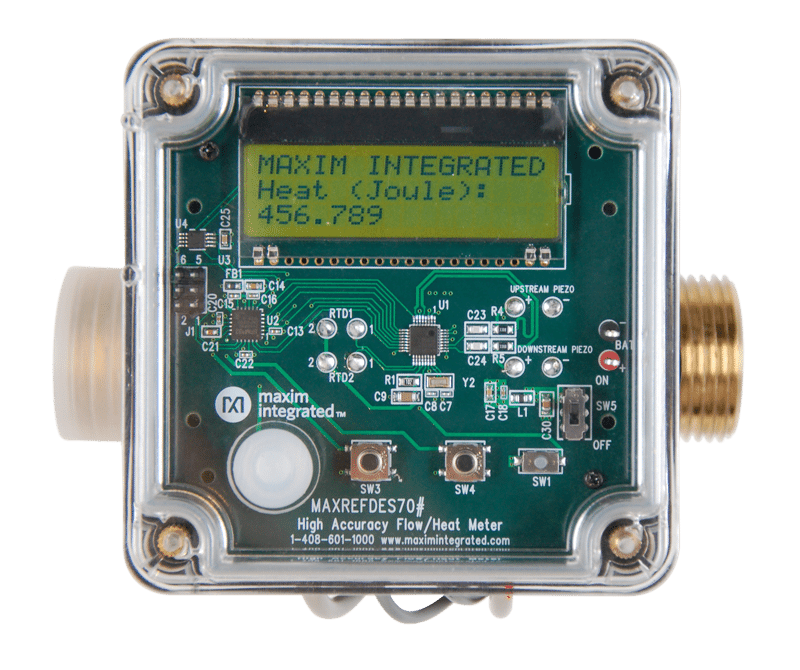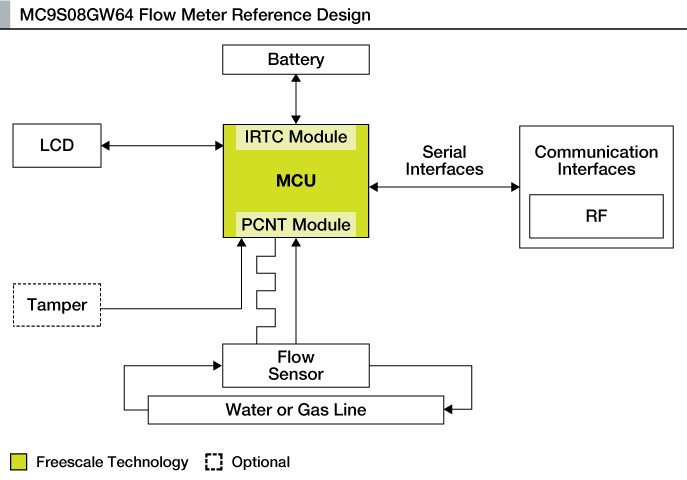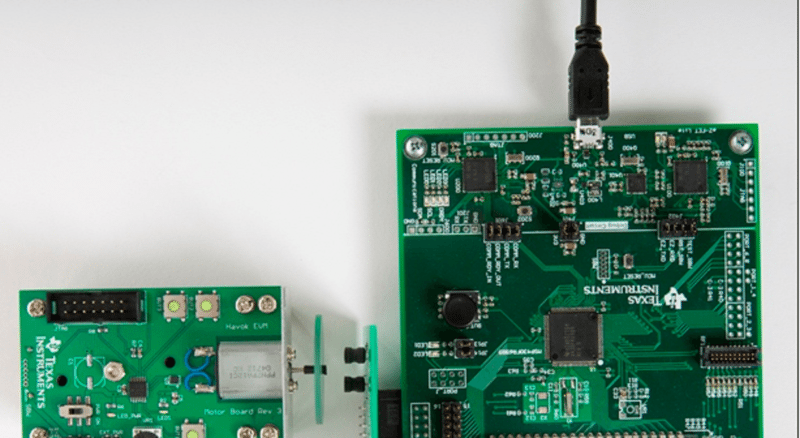Smart flow meters help improve the water and heat metering accuracy by an order of magnitude compared to traditional meters. Traditional mechanical flow meters measure water and heat usage using mechanical components that are prone to friction, and get out of calibration easily, leading to inaccurate readings and high maintenance costs. Utilities and industries can leverage on electronic flow meters which are a modern alternative to that old technology. Not only do these smartmeters provide the necessary accuracy and precision, they also reduce power consumption, thereby allowing operation on battery for years.
Mentioned below are some flow metering reference designs that can get you started quicker with development. Also offered are complete block diagrams, user guides, bill of materials (BOM), design files and test reports. Take a look!
Ultrasonic Flow Meter Design using Time to Digital Conversion:

With the flow meter reference design described here, utilities can now improve water and heat metering accuracy by utilising sophisticated digital signal processing techniques. This flow meter design centers on the MAX35101, a complete time-to-digital converter with analog front-end (AFE) that measures the difference of upstream and downstream ultrasonic pulses (Time of Flight). With flow measurement rates as low as < 30 l/hr, the MAX35101 calculates a very accurate flow rate with highest time-to-digital conversion accuracy of 20ps till date. The device is capable of operating for upto 20 years on a single A-size battery. All the functions required for TOF (time-of-flight) measurements, including ultrasound pulse launching and detecting, TOF calculation, temperature measurement, and a real-time clock (RTC), are integrated on the MAX35101. The IC can be configured in various event-timing modes to reduce total power consumption of the system. More on this Reference Design
Long Battery Life Flow Meter with Tamper Detection:

This reference design explains a Flow meter that displays the flow of water or gas over time. The system can run on battery for many years. In this flow meter, the MCU stays in low power mode most of the time. A position counter module in the MCU (MC9S08GW64) is used to calculate the flow accumulated. This module can run even when the MCU is in low power mode. User can press a switch to display the flow accumulated in a month on the LCD. A tamper detection mechanism can detect a box-open tamper even under power failure. All the data stored can be transferred over the ZigBee wireless technology for evaluation. More on this Reference Design
Ultra-low-power Flow Meter with Two LC Sensors:

The reference design presented here implements an ultra-low power rotational flow meter. The design leverages the ultra-low-power and smart integration features like extended scan interface (ESI) of the MSP430FR6989 to reduce power consumption and redundant components. The new MCU allows connection of the meter to smart grid. The design is built using three boards. The first board hosts the MCU with LCD, the second board has two LC sensors, and the third board is the motor board to emulate gas or water flow. The design uses contactless rotation detection, meaning that the sensors can detect the number of the plate’s rotations (when water or gas flows through the meter) without direct contact, which prevents corrosion. The LC sensors consume low power and provide long-term operation of flow meters. Counting error is minimized with two sensors. An on-board debugging circuit is provided and the FlowESI GUI allows sensor set-up in software. Self-calibration feature ensures reliability to environmental changes and components aging. More on this Reference Design













